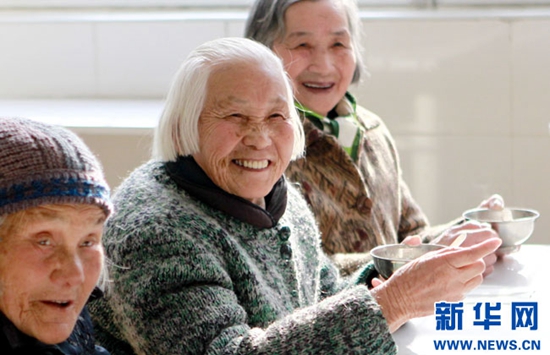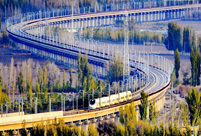

 |
| Xinhua file photo |
According to data released by the Beijing Municipal Commission of Health and Family Planning, the average life expectancy of people in Beijing has reached 81.95 years, up from 80.81 years in 2010. The health level has remained one of the best among cities in China, and caught up to the level of some developed countries.
In 2015, Beijing residents’ average life expectancy was 81.95 years old. In addition, the maternal mortality rate is now below 12/100,000; the infant mortality rate and mortality rate for children under 5 is respectively 2.49 and 3.09 permillage, down from 3.29 and 4.16 in 2010.
The notifiable infectious diseases rate has dropped greatly, from 828.5/100,000 down to 498.95/100,000, a decrease of 39.8 percent.
The health level of Beijing residents is still among the best in the nation, with major health indicators reaching the levels of developed countries.
In addition, the data also shows that in 2015, the total mortality rate of people live in Beijing was 6.42 permillage.
The top causes of death were malignant tumors, heart disease and cerebrovascular diseases. Those were followed by respiratory diseases, injury and poisoning, internal secretion, nutritional and metabolic diseases, and diseases of the digestive, nervous, urinary and reproductive systems, altogether accounting for 94.88 percent of deaths.
Beijing has maintained a steady growth of health expenditure, which accounted for 8.23 percent of the GDP in 2015, an increase of 0.25 percent from the previous year.
Of all the health expenditure sources, personal cash health expenditure takes 17.42 percent, down 0.98 percent from last year.
Moreover, the number of medical and health organizations had reached 10,425 by the end of 2015, increasing 9.4 percent from the 11th Five-Year Plan period.
There has been significant enhancement of community-based medical and health care in Beijing. The number of people getting treatment reached 65.96 million in 2015, a 35 percent growth from the previous year.
 China has world's largest high-speed rail network
China has world's largest high-speed rail network Top beauties in Chinese provinces
Top beauties in Chinese provinces 600 people attend Lusheng playing contest in S China
600 people attend Lusheng playing contest in S China Engineer troop builds bridge in real combat conditions
Engineer troop builds bridge in real combat conditions You can urinate in public in Chongqing
You can urinate in public in Chongqing Rice terrace scenery in southwest China's Yunnan
Rice terrace scenery in southwest China's Yunnan 2016 Miss Chinatown USA pageant held in San Francisco
2016 Miss Chinatown USA pageant held in San Francisco Ancient pagodas across China
Ancient pagodas across China Wedding dress show up in the air
Wedding dress show up in the air Top 20 hottest women in the world in 2014
Top 20 hottest women in the world in 2014 Top 10 hardest languages to learn
Top 10 hardest languages to learn 10 Chinese female stars with most beautiful faces
10 Chinese female stars with most beautiful faces China’s Top 10 Unique Bridges, Highways and Roads
China’s Top 10 Unique Bridges, Highways and Roads Culture shock for pets
Culture shock for pets Open Internet must be controllable
Open Internet must be controllable Grown-up children of migrant workers more likely to be jailed
Grown-up children of migrant workers more likely to be jailed Smooth sailing for cruise market as passengers pass 1m mark
Smooth sailing for cruise market as passengers pass 1m markDay|Week